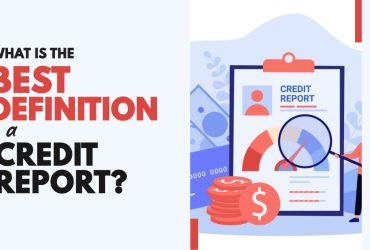4 Things to Consider When Starting a Credit Repair Business
by Almas Tariq
May 7, 2025
05:55 PM

The credit repair industry continues to grow as more consumers seek help managing their credit profiles, disputing inaccuracies, and recovering from financial setbacks. For entrepreneurs with a passion for finance, problem-solving, and helping others, starting a credit repair business can be a rewarding and profitable venture.
But success doesn’t happen by luck or hustle alone—it takes strategic planning, a deep understanding of regulations, access to accurate information, and the right systems in place to run efficiently. In this comprehensive guide, we’ll cover four critical areas you need to master before launching your credit repair business in 2025.
-
Compliance: Lay the Legal Foundation First
Before you think about landing your first client or sending your first dispute letter, you must understand the legal environment that governs credit repair businesses in the U.S. This industry is tightly regulated to protect consumers from fraud and misinformation, and even unintentional missteps can result in hefty penalties or even lawsuits.
🧾 Key Compliance Laws to Understand:
- Credit Repair Organizations Act (CROA) – Requires clear disclosures, prohibits upfront fees, and mandates written contracts.
- Fair Credit Reporting Act (FCRA) – Regulates how credit information is collected, reported, and corrected.
- Telemarketing Sales Rule (TSR) – If you’re using phone calls or email to generate leads, you must adhere to these guidelines, especially concerning advance fees.
- State Regulations – Each state may have specific laws or licensing requirements for credit repair businesses. Some states require bonding, registration, or restrictions on service offerings.
✅ How to Stay Compliant:
- Create a written client agreement that includes all legally required disclosures.
- Never charge clients before delivering services unless you’re exempt under TSR.
- Maintain documentation of all disputes and communication.
- Use software with built-in compliance features (like ScoreCEO) to automate legally required processes such as contracts, audits, and communications.
- Consult with a legal expert or credit repair compliance specialist to review your business setup.
Compliance isn’t just about avoiding legal trouble—it’s about building trust with your clients from day one.
-
Credit Repair Education: Become an Expert Before You Offer Solutions
One of the biggest mistakes new credit repair business owners make is jumping in without truly understanding how credit reporting, scoring, and dispute processes work. To run a successful business, you must go beyond basic knowledge and develop deep, actionable expertise in:
- Credit bureau reporting systems
- Scoring models (FICO vs. VantageScore)
- Types of derogatory accounts (collections, charge-offs, bankruptcies)
- How to draft effective dispute letters
- How to handle creditor and bureau responses
- How to educate clients ethically and transparently
📚 Where to Learn:
- ScoreWayU – A free resource hub offering structured, professional credit repair education, compliance training, sales tips, and more.
- Industry Events & Webinars – Attend summits like the Credit Repair Summit or virtual workshops led by reputable credit experts.
- Certifications – Consider professional certifications in credit consulting or financial coaching to boost credibility.
Education is not a one-time investment—it’s a continuous journey. Regulations evolve, credit scoring models shift, and new dispute tactics emerge. Staying ahead of industry trends positions you as a credible authority and ensures your clients get results grounded in best practices.
-
Credit Repair Marketing Strategies: Attract and Convert the Right Clients
You might have the best knowledge and tools, but without a strategic marketing plan, no one will know your business exists. Marketing is not just about visibility—it’s about reaching the right audience, building credibility, and nurturing long-term relationships that drive referrals and repeat business.
🎯 Essential Marketing Tactics for Credit Repair:
- Personal Branding – Build trust through educational content. Share tips, client success stories, or credit news on platforms like Instagram, TikTok, and LinkedIn.
- Referral Partnerships – Collaborate with loan officers, mortgage brokers, realtors, and auto dealers. When their clients face credit issues, you become the trusted referral.
- Email Campaigns – Nurture leads through automated email sequences that educate them about credit, showcase your services, and build authority.
- Local SEO & Website Optimization – Optimize your website with keywords like “credit repair services in [City]” and ensure your Google Business Profile is claimed and updated.
- Free Lead Magnets – Offer downloadable resources like “Top 10 Credit Mistakes to Avoid” or “Beginner’s Guide to Credit Repair” to capture emails and build a list.
🔧 Pro Tip:
Use CRM-based tools or credit repair business software like ScoreCEO to automate follow-ups, run referral campaigns, and manage leads efficiently.
Marketing is a long-term game, but with consistency and authenticity, it becomes a growth engine for your business.
-
Credit Repair Software: Work Smarter from Day One
Trying to run a credit repair business using spreadsheets, word docs, and sticky notes might work for a few clients—but it quickly becomes chaotic as you grow. Investing in professional credit repair software is a game-changer that saves time, ensures consistency, and protects your business.
💻 What to Look for in Credit Repair Software:
- Dispute Automation – Auto-generate letters and track disputes across bureaus and clients
- Compliance Safeguards – Built-in contracts, timestamped logs, disclosure delivery, and audit trails
- Client Portal – Allow clients to view their progress, upload documents, and receive updates
- Lead and Sales Management – CRM features to track potential clients and automate email/SMS follow-ups
- Analytics and Reporting – Measure dispute success rates, client conversion, and retention performance
One of the most reliable platforms used by credit repair businesses today is ScoreCEO. It’s designed with both compliance and automation in mind, offering tools that scale with you from startup to established business.
Final Thoughts: Build a Business That Lasts
Starting a credit repair business in 2025 isn’t just about fixing credit—it’s about creating a trusted brand that delivers real, lasting value. As the industry grows more competitive and clients become more informed, building a business that stands out requires more than just motivation. It requires a commitment to doing things the right way—ethically, legally, and professionally.
By making compliance your legal shield, education your foundation, marketing your growth engine, and software your operational backbone, you’re not just launching a business—you’re building a sustainable company designed to thrive in the evolving credit landscape. With the right tools and mindset, long-term success is absolutely within reach.
Frequently Asked Questions (FAQs)
-
1. Do I need a license to start a credit repair business?
It depends on your state. Some states require licensing, registration, or bonding to operate a credit repair business legally. Always check with your state’s Attorney General or regulatory office before launching to ensure full compliance.
-
2. What is the best credit repair software for beginners?
If you’re just starting out, look for software that offers automation, built-in compliance features, and CRM tools. ScoreCEO is widely used in the industry and offers an all-in-one solution that scales with your business.
-
3. How can I get clients for my credit repair business?
Start by building referral partnerships with loan officers, realtors, and car dealerships. Combine that with personal branding on social media, educational content, and local SEO strategies to attract and convert leads.
Table of Contents
Explore More Insights
Dive deeper into a wealth of knowledge. Discover a multitude of articles covering diverse topics, expert perspectives, and the latest trends. Feed your curiosity and expand your understanding.



